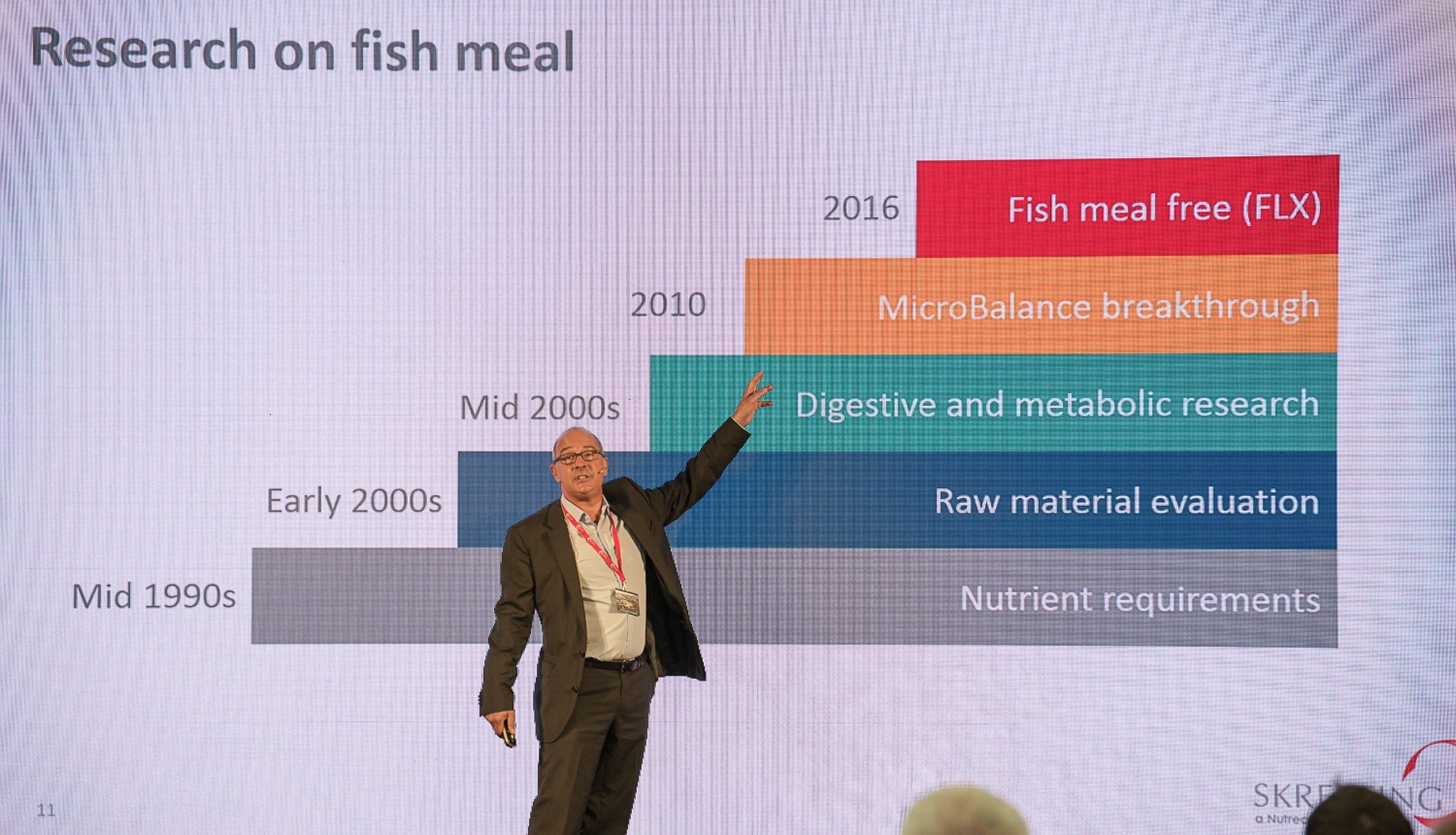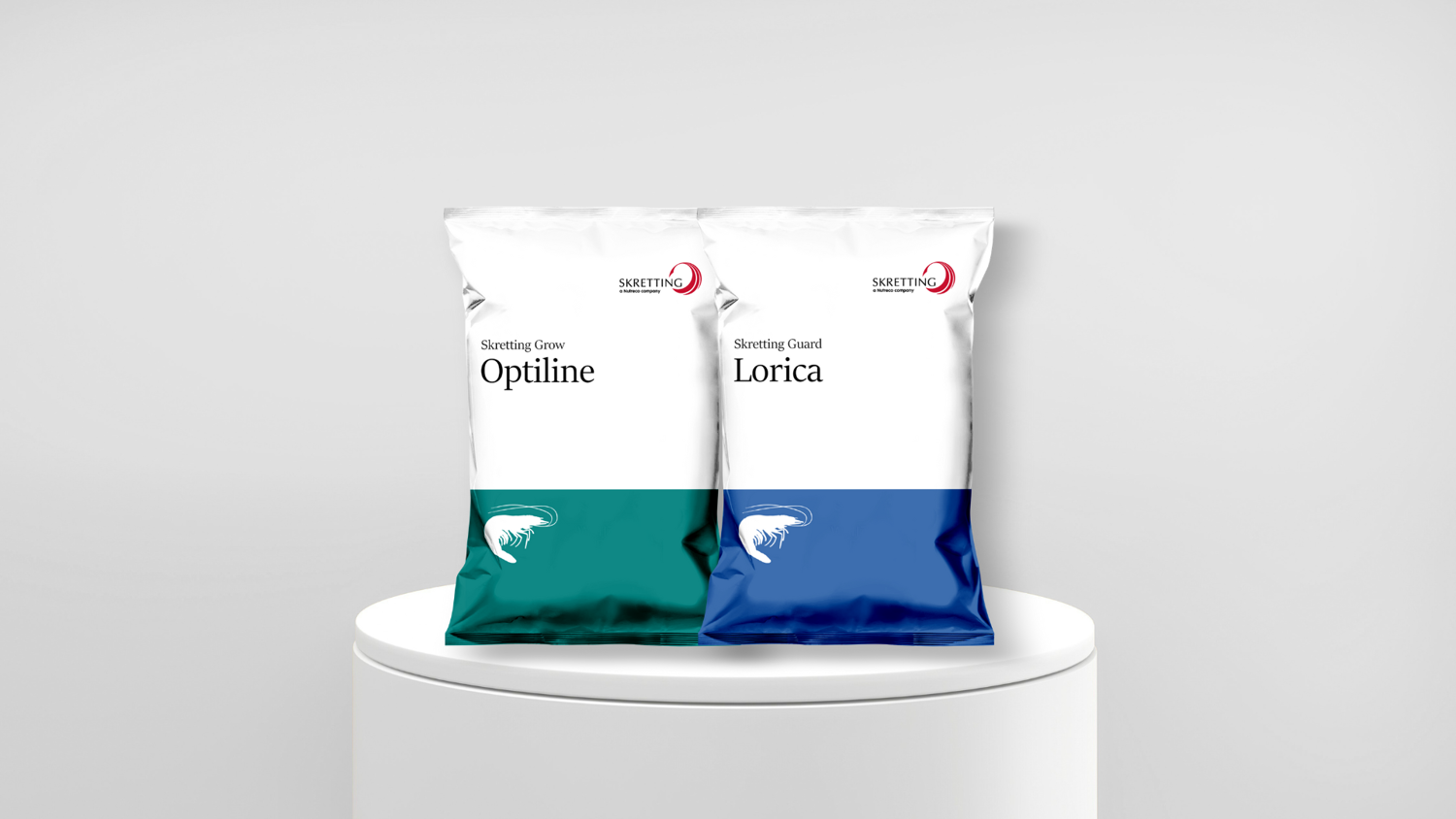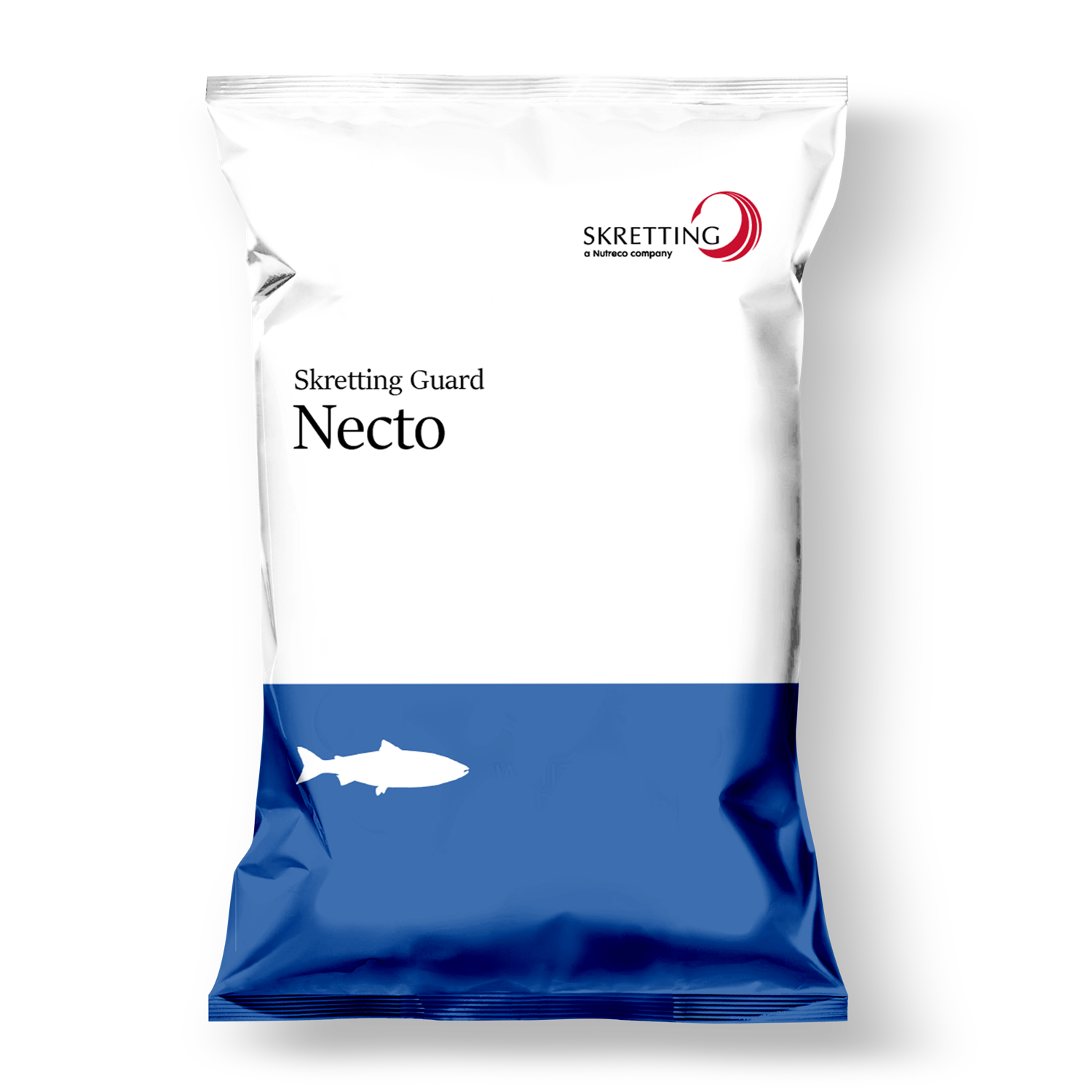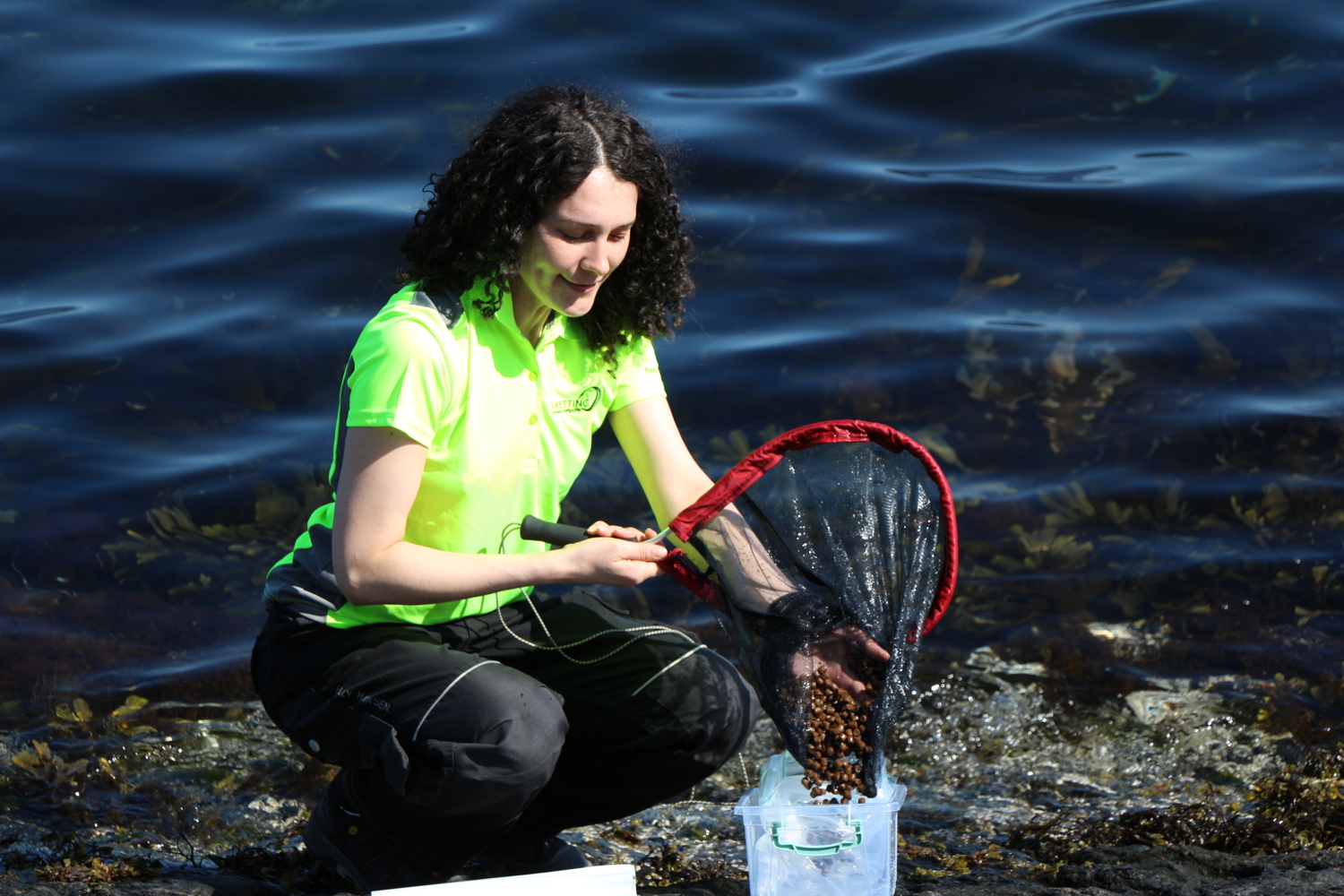Fish oil availability is no longer an obstacle to the expansion of the global aquaculture industry thanks to the arrival of Skretting’s latest technological breakthrough – N3.
No constraints, no limitations – the infinite age of N3 is here

N3 is a groundbreaking salmonid diet that utilises a new marine algae oil capable of providing a viable and sustainable alternative to the finite supply of the traditional fish feed raw material.
Fish oil has historically been essential to aquaculture as it has ensured end products contain the two essential long-chain omega-3 fatty acids eicosapentaenoic acid (EPA) and docosahexaenoic acid (DHA) that are favoured by consumers for their well-known health benefits. While currently in good supply, this marine ingredient is constantly in very high demand from multiple sectors, which in turn limits its market availability and presents a potential future bottleneck challenge in the growth of aquaculture.
Fortunately, unprecedented levels of innovation with regards to the development and sourcing of alternative sources of EPA and DHA, as well as feed proteins and new feed formula technologies, including our MicroBalance concept, mean that Skretting has become increasingly independent from any single raw material. Produced by Veramaris, the natural algae oil incorporated in N3 contains high levels of EPA and DHA.
Launched at Skretting’s Infinity Seminar at Aqua Nor 2017 (Trondheim, 15-18 August) and globally available in 2019, the new generation N3 diet throws off the heavy shackles of raw material dependability, presenting the aquaculture industry with the scope to grow sustainably to new levels of output. Consequently, more consumers around the world will be able to benefit from the health-supporting properties of delicious, nutritious fish like salmon and trout.
Progressing sustainability
With limited growth coming from the global wild fish supply and the planet’s population set to grow by an additional 2 billion people by 2050, the aquaculture industry is under immense pressure to produce considerably more seafood for human consumption than it is at present. While it has been rising to this challenge, establishing itself as one of the world’s fastest growing food production industries in recent years, the industry also needs to ensure best practice remains a sector priority and at the heart of this commitment is an overriding need to ensure the sustainable supply of limited marine ingredients.
Researchers at Skretting Aquaculture Research Centre (ARC) have therefore been actively investigating alternative raw materials for many years. Through this pioneering research, Skretting has gained the knowledge and developed the technology to replace traditional marine-based feed components with alternative ingredients while ensuring fish and shrimp retain the taste and nutritional qualities that consumers expect. Consequently, the company is able to offer innovative and sustainable nutritional solutions that create more value and far greater predictability for the aquaculture industry.
Raw material flexibility
In 2016, Skretting delivered MicroBalance FLX – the world’s first commercial salmon feeds to be completely free of fishmeal or other marine proteins while delivering equal performance in terms of fish growth and health. Together with the application of the new algae oil, Skretting is moving the aquaculture industry even closer to total independence from fish-based raw materials and an age of infinite potential.
Because fish oil, like fishmeal, is a natural and well-balanced source of high-quality protein for aquaculture feed formulation and carries large quantities of energy per unit weight, Skretting will continue to use it as an ingredient. However, in utilising the algae oil in its new N3 diet, Skretting can be even more flexible with regards to its raw material inclusions. Accordingly, fish oil becomes just like any other raw material; it is interchangeable and can be formulated into feeds at varying levels depending on specific nutrient requirements, customer needs as well as fluctuating prices and availability.
Essentially, new N3 enables the responsibly sourced fish oil resource to go much further than ever before, thereby increasing the overall sustainability of the aquaculture industry.
Passing the taste test
N3 is already being used by a few select salmon producing operations that were keen to evaluate its performance, and guests at the Infinity seminar became some of the first people in the world to taste salmon that had been reared without any fishmeal or fish oil.
Evy Vikene, Marketing Manager in Skretting Global Salmon, comments, “It is widely maintained that the proof of the pudding is in the eating, and so the salmon tasting was a fitting finale to the seminar. Our guests, including many leading figures from the salmon and seafood industry, were very complimentary about the fish’s quality, flavour and texture, with many saying that it was indistinguishable from a top-quality salmon fed on a traditional diet containing fishmeal and fish oil. We were also delighted with the overwhelming support voiced for the innovative approach that Skretting continues to take with regards to improving the efficiency and ecological footprint of aquaculture production globally.”
Christian Strøm from Bellona is tasting salmon reared without any fishmeal or fish oil.


